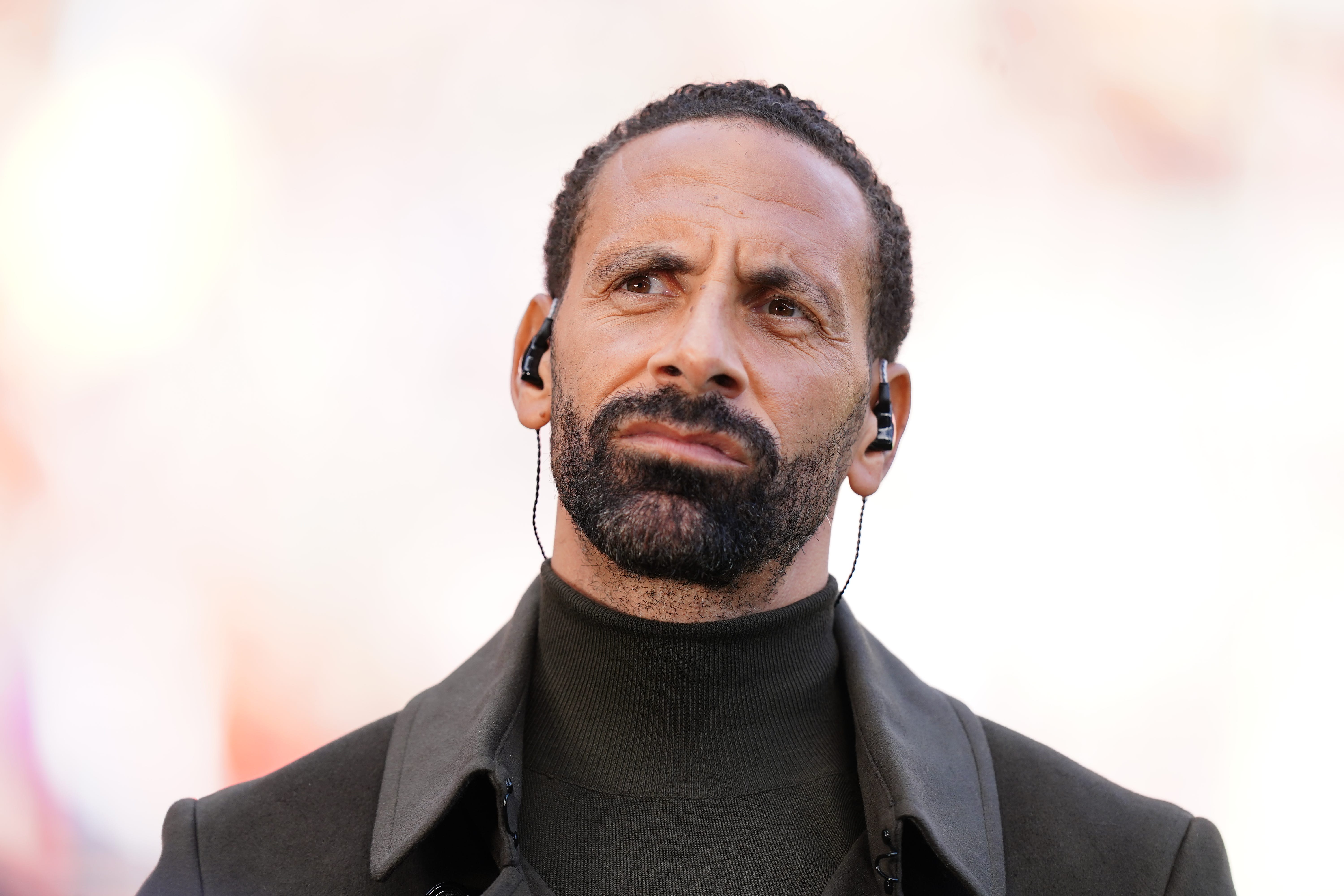Rio Ferdinand: Players should not be going to World Cup fearing racist abuse
Racism is one of the topics the ex-England defender explores in his new three-part Prime Video documentary series Tipping Point, premiering on Friday

Rio Ferdinand is deeply concerned for footballers he believes will become the targets of racist abuse and “hate behaviours” during the World Cup.
The former England defender, who earned 81 caps for the Three Lions, has called on social media companies to do more for athletes he says are not afforded enough protection against virtual vitriol from keyboard warriors, with some incidents warranting criminal investigations.
Ferdinand, himself frequently subjected to attacks, expressed exasperation on behalf of players who could fly to Qatar fearing their lifelong dreams of playing on football’s biggest stage will be ruined by racism.
“I honestly think it probably will happen again,” he said. “It’s unfair. And I don’t think it’s just English players, I think it’s players of colour from all over the world who will be thinking this.
“For a player to be getting on the pitch and thinking, ‘If I make a mistake, I could be racially abused’, that’s real. And in today’s day and age, should that be the case? It shouldn’t be. It shouldn’t be in any day and age, but you’d think we would have made steps to come forward from this.
“But the intentions and the values of the social media platforms are there for all to see. They’re not willing to change, because they know that these types of toxic behaviours and hate behaviours drive revenue. So they’re not going to change, it seems to me, at the moment.”
Marcus Rashford, Jadon Sancho and Bukayo Saka were subjected to a barrage of abuse after missing penalties in England’s Euro 2020 final shootout defeat to Italy, with just four men convicted one year later.
Many criticised the severity and low number of punishments handed out by authorities and, like Ferdinand, have urged tech giants to do more to shield players from similar torrents of hate.
The proposed Online Safety Bill would impose a greater duty of care on tech companies to tackle abuse on their platforms, and includes the power to fine those that do not comply. It was due for the next phase of discussion in Parliament this summer but has been delayed multiple times since.
Ferdinand said: “The players must be sitting there thinking, ‘Well, I’m at the mercy of somebody’s kind of ignorance. If they decide to come out and spout all of this abuse during the World Cup after a situation arises in a game, I’ve got no protection’.”
Racism is one of the key topics Ferdinand explores in his new three-part Prime Video documentary series Tipping Point, premiering on Friday, with the other two instalments focusing on mental health and sexuality within the football ecosystem.
In the first episode, Ferdinand takes a trip to Los Angeles to speak with former Lioness Eniola Aluko, now director of recruitment at National Women’s Soccer League side Angel City.
Aluko, who has testified in front of Parliament on racism and inclusion matters, tells Ferdinand she feels American athletes have made more progress in using their profile to tackle hate.
Ferdinand agrees, pointing to NBA players’ 2020 play-off game boycotts in the wake of the shooting of 29-year-old black man Jacob Blake by police as an example of athletes taking more disruptive action.
Why, then, are English footballers not doing something similar?
“They’re disheartened,” Ferdinand said. “They don’t see enough movement when things go wrong. They don’t see enough support, even empathy and compassion sometimes when they’re on the receiving end of some of these things.
“So I understand the pushback from them to say if nothing’s going to happen, why have I got to have the energy to do this?”
Ferdinand hopes to alleviate pressure on individual players and has set up what might be the most powerful WhatsApp group in football, with members including Wilfried Zaha, Romelu Lukaku, Ian Wright, Hope Powell and Peter Crouch among those actively planning how to harness their collective power – something Ferdinand believes is fundamental to influencing stakeholders.
“I’m hopeful,” he said. “I’m not naïve enough to think that we put out this documentary and we’re going to rewrite the rulebook and everything’s going to change for the positive. (But) you’d like to have some sort of good impact in the right way.”
Join our commenting forum
Join thought-provoking conversations, follow other Independent readers and see their replies
Comments
Bookmark popover
Removed from bookmarks